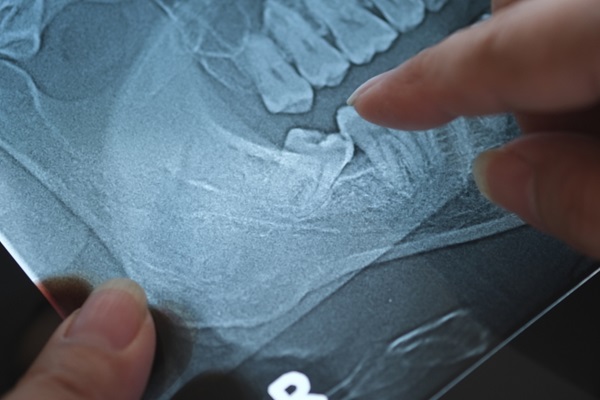Does Wisdom Tooth Extraction Require Invasive Surgery?
Posted on: October 11, 2024
In modern society, it is almost a rite of passage to have a as a young adult. Wisdom teeth, the final, permanent molars located in the very back of the mouth, can actually cause problems for many patients if they are not removed. Fortunately, in most cases, the procedure is minimally invasive and does not require extensive healing time.
When does a dentist consider wisdom tooth extraction?
Wisdom teeth that are unable to erupt are referred to as “impacted.” Impacted teeth can lead to a host of dental problems, including infection, pain at the site of the impaction, bleeding gums, jaw pain, and difficulty opening the mouth. To avoid these potential issues, many dental professionals prefer to take out these molars even if they are not currently causing problems for the patient in question. Wisdom teeth can additionally crowd the other teeth and even cause shifting in a patient’s formerly perfect smile.
How does a specialized dentist extract wisdom teeth?
A dentist can explain to the patient the need for having wisdom teeth extracted. Perhaps the teeth are impacted, or maybe the dentist wants to prevent future problems in a patient with a small mouth by removing the wisdom teeth while the patient is still an adolescent, before the bones harden, which would make the procedure more difficult for a patient as an older adult.
Before the extraction
The dental professional begins by going over the plan for extraction. For most patients, this procedure is no different than having any other tooth pulled. The exception is that these large molars sit in the very back of the mouth, which requires the patient to sit in an uncomfortable position for a while.
During the extraction
For wisdom teeth that have already erupted from the gums, the dental professional simply rocks the teeth from side to side and pulls gently with specialized equipment. This is similar to removing any other tooth. The patient may feel some pressure when the tooth is being removed. If the teeth have not yet erupted, the dentist may make a small slit in the gum in order to access the tooth underneath the gum.
After the extraction
Patients will receive instructions to avoid several activities after the removal, such as swishing with liquids, smoking, and drinking hot beverages. Every patient’s plan of care is slightly different due to unique factors in their cases. For instance, if a patient received stitches after having an incision to extract an impacted tooth, caution may be needed in eating and drinking specific foods for a longer period of time.
Conclusion
For most healthy patients, wisdom tooth extraction is a common, minimally invasive procedure that results in few complications and prevents future dental problems. If you still have wisdom teeth as an adult, it is not too late to investigate whether extraction would be beneficial. Consult with a licensed dentist to make a plan for the wisdom teeth and the long-term health of the teeth and gums overall.
Are you considering wisdom tooth extraction in the Vienna area? Get more information at https://justforyoursmile.com.
Check out what others are saying about our dental services on Yelp: .
Related Posts
Knowing when you need an emergency dentist can help save teeth, preserve oral health, and prevent serious complications. From sudden tooth pain to dental trauma, understanding the signs that require immediate attention helps ensure timely and effective care. Learning more about the role of an emergency dentist can prepare patients to act quickly in critical…
Just For Your Smile Dental Clinic in Vienna, VA is looking for a Dentist to perform thefollowing job duties:Performing exams and evaluating x-rays to determine a patient’s health and give patientsdifferent treatment options; Conduct comprehensive assessments of patients’ oral health,including the condition of teeth, gums, and jaw structures; Develop detailed treatment plans forrestoring oral function…
Dental cleaning is a huge part of routine check-ups. The procedure involves using a scaler to scrape off tartar and plaque deposits from the tooth surfaces. Plaque is the sticky film that builds up on teeth, and it hardens into tartar when left on the tooth surfaces for a few days. Both make you more…
When a tooth develops a cavity, a tooth filling will be required to repair the tooth and restore its function and appearance. Since tooth pain is often the first sign of a cavity, it is normal for patients to be worried about what they will feel during the filling procedure. This article focuses on what…





